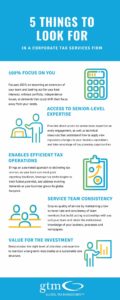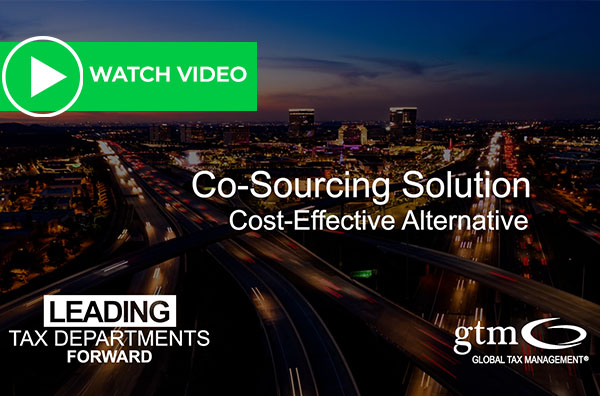Tax Department Challenges
When Thomson Reuters released its Tax Departments and Technology report earlier this year, taking a look at how tax teams were keeping up with business-as-usual activity against the backdrop of a global pandemic, I read it with great interest. Between the COVID-19 pandemic and pending changes to tax law by the Biden Tax Regime, there has been an avalanche of property tax triggering events that have impacted the values of taxable assets across a wide swath of industries and commercial properties. Everything from mergers to acquisitions and dispositions, asset impairments, competitive marketplace developments, tax legislation, and other external factors have taken on a heightened urgency when it comes to property tax. Meanwhile, in-house tax departments work to keep up with daily requirements while bracing for the uncertainty to come.
The results were less than surprising. Tax reform, specific tax workstreams, acquisitions, and macro changes in politics and the economy are critical challenges for companies surveyed in the US and Canada, the UK and Mainland Europe, and a small number from the rest of the world. However, this report took a special look at indirect tax teams, finding that 57% are anticipating significant government change in terms of digital filing or real-time reporting. Almost all respondents expect to face serious challenges around people, processes, and technology to comply with emerging rules.
The implications for companies with a property tax function are clear: we must find ways to optimize the time and skill sets of in-house functional teams to be more strategic, while looking outward to acquire alternative resources to provide stability and technical acumen for day-to-day functions.
The Tax Department Resource Gap
According to the Thomson Reuters report, half of corporate tax departments feel under-resourced. Tax reform, digitized tax filing, remote work, and new technology and automation projects have made it a challenging year for tax teams with already strained resources. Advanced technology is the single biggest skills gap for tax teams today, with 21% citing it as a top concern.
These resource gaps are especially felt by companies with limited resources or no internal tax department; companies that don’t have specialized tax function resources in-house, including property tax; and foreign-owned companies entering the US market.
Specifically, GTM sees the following challenges when it comes to the property tax function:
- Seasonality of property tax work. The seasonality aspects of property tax in particular, puts a significant strain on available corporate tax department resources. Property tax rendition filings are subject to a condensed timeframe falling largely in the first two quarters of the calendar year with a significant proportion due by April. Though property tax payments occur throughout the year, resources must also balance workloads to pay property tax bills during this same condensed time frame. Complicating the tight rendition filing deadline schedules in the first quarter are the delays obtaining the fixed asset records especially for late year-end closings. Availability of corporate tax resources devoted to specific activities such as tax reform further complicates requests to expedite fixed asset reports or special requests.
- Lack of Automation. The lack of available time to focus on more automated processes, following the developments in every state or developing and implementing effective strategies to legally minimize property tax liabilities is a challenge for many tax departments. This is especially true when considering that value-added property tax responsibilities such as reviewing and appealing real and personal property taxes occurs concurrently with the rigorous demands for compliance activities during the first two quarters of the year.
The Outsourcing Option
Depending on a company’s size, its global footprint, the complexity of its tax issues, its ability to respond to COVID-based triggers and new legislation will vary. In the end, companies who find the right people, process, and technology will strike the balance between addressing operational tax functions and reducing overall tax liabilities for their organization.
When considering looking to the outside for help, incorporate outcome-based objectives into your business case. Companies who outsource their property tax function can expect to see the following outcomes:
- An affordable and value-added tax function. Without the costs of additional overhead and training, companies can implement a tax model that is affordably sourced, effectively staffed with skilled tax resources at all levels, and efficiently focused to bring a practical approach to the tax function.
- Tax obligations that are consistently and correctly met. An outsourced model can help you meet existing tax reporting obligations and prepare for future obligations as market expansion and changes in your organizational footprint occur.
- Better management of increasing tax complexity. A full or partial outsourced tax model will help you keep pace with fast-moving regulatory changes while improving processes both in day-to-day reporting and long-term planning.
- Establishment of turnkey processes that can be brought back in-house. You can create systems, processes and workpapers for all facets of tax reporting with a current-state outsourced model, while maintaining the future state option of easily transitioning tax reporting back in-house, fully intact.
Tax Automation and Technology Integration
Corporate tax is one of the most mission-critical operational functions within an organization, especially in a post-Wayfair and post-pandemic economy. Even before these developments, tax departments were notoriously mired in manual processes. On a monthly and annual basis, tax accountants are faced with gathering and manipulating disparate data sources to prepare tax returns and file information to be remitted to the various jurisdictions. These exercises were time- and risk-intensive even before COVID and the Biden Administration’s proposed tax reform agenda upended things even further. Yet it is common that tax technology is underutilized, or unused altogether, within corporate tax departments, and resource-strained tax departments lack the bandwidth to maximize it fully.
Another stress point for property tax teams is data integrity. Various business activities such as employee turnover, migration from ERP systems and M&A activity put added strain on existing manual processes which can greatly reduce data quality and availability.
Once the compliance busy season begins and the volume of data and timeframe to complete key compliance tasks converge, the ability to automate repeatable tasks can greatly free up resources to handle pivotal deadlines. In these circumstances, deploying a self-service data analytics solution such as Alteryx can manipulate these disparate data feeds to harmonize the data quickly and effectively into a usable format. Without the need to train up resources, outsourcing will allow you to begin to fully leverage technology solutions like Alteryx that will bring automation, efficiency, and accuracy to a streamlined process.
Property tax teams are working diligently to meet their regular tax obligations while preparing for upcoming changes, but their work is just beginning. Global Tax Management (GTM) can bring you a full suite of property tax services to help you navigate your upcoming property tax challenges, and help you navigate other tax challenges in the ever-changing and complex landscape we live in today. Contact us for more information.



